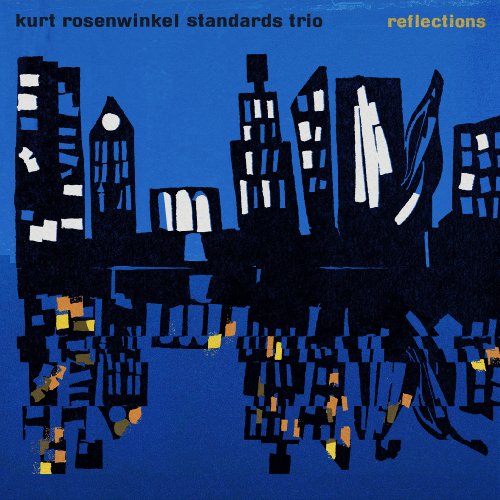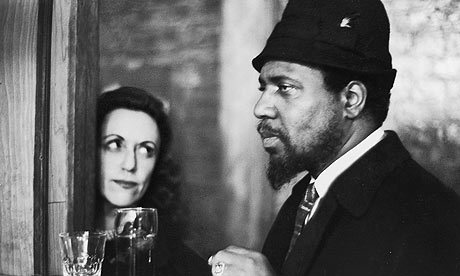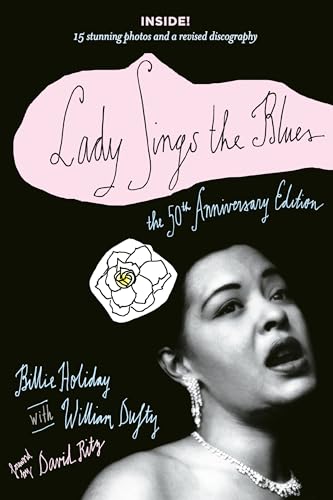 Choosing my ten favorite jazz albums of 2009 was tough. Almost every jazz album I listened to last year was worthwhile. There were many deserving albums that didn't make my list such as Hank Jones' "Pleased to Meet You", Wynton Marsalis' "He and She", Pamela Rose's "Wild Women of Song", Chris Potter's "Ultrahang" and Norah Jones' "The Fall". I replay those recordings often, and they still make the hairs on my neck dance. Although they did not make my final cut, I want to congratulate those musicians. Each album was wonderful, and I said so when I reviewed them.
Choosing my ten favorite jazz albums of 2009 was tough. Almost every jazz album I listened to last year was worthwhile. There were many deserving albums that didn't make my list such as Hank Jones' "Pleased to Meet You", Wynton Marsalis' "He and She", Pamela Rose's "Wild Women of Song", Chris Potter's "Ultrahang" and Norah Jones' "The Fall". I replay those recordings often, and they still make the hairs on my neck dance. Although they did not make my final cut, I want to congratulate those musicians. Each album was wonderful, and I said so when I reviewed them.Making a best of list, I have a sense of what a baseball manager experiences when he has to make final cuts. It's a heartbreaking task. I bet a manager hates informing a prospect who worked hard during spring training he did not make the team. Of the many albums I listened to, choosing my ten favorite wasn’t easy. I managed to do it. If you haven't already experienced these albums, you should buy them immediately. You won't regret it. I guarantee that.
By the way, the Metrotimes, a weekly newspaper based in Detroit, Mi, published my list Wednesday in the music section of www.metrotimes.com. Without further ado, here are my ten jazz albums of 2009.
1) James Carter, Heaven on Earth (HalfNote Record): This is the third stellar live recording from saxophonist Carter. Organist John Medeski and the saxophonist are musical soul mates.
2) Dave Holland, Gonzalo Rubalcaba, Chris Potter and Eric Harland, The Monterey Quartet: Live at the 2007 Monterey Jazz Festival (Monterey Jazz Festival Record): The definitive all-star jazz quartet is captured live on this disc, and I've already ruined a pair of by best Sunday shoes because I couldn't stop dancing!
3) Gerald Wilson, Detroit (Mack Avenue Records): This accomplished big band leader and composer is 91 years old, but he still has the energy and enthusiasm of a young lion.
4) Jeff "Tain" Watts, Watts (Dark Key Music): I was once convinced that a jazz band couldn't swing without a piano player. Well, I was on my third serving of Wattsbefore I realized the piano player was absent!
5) Matt Wilson, That's Gonna Leave a Mark (Palmetto Records): True to its title, this album left me with many marks — emotional, psychological, all good — and drummer Wilson's thunderous rim shots are still ringing in my ears.
6) Kenn Cox and Donald Walden, Duet at Kerrytown (N/A): They were jazz royalty, and they bequeathed this gem-recorded to their fans in 1994, though it didn't see release until this year.
7) Scott Gwinnell Jazz Orchestra, Brush Fire (WSG Records): This is Gwinnell's first big-band offering. And such inspirations as Duke Ellington and Oliver Nelson would've probably loved this recording.
8) Eric Alexander, Revival of the Fittest (High Note Records): The tenor saxophonist consistently makes great albums, but the ballads on this year's terrific offering is enough to make your soul cry.
9) Dana Hall, Into the Light (Origin Records): The drummer has built a reputation as top-notch sideman, and his first album as a leader feels something like a coming-out party
10) Ryan Enderle, Triosphere (Self-released): The jazz bassist created a trio date here that's on par with jazz great Roy Haynes Trio's We Three.
3) Gerald Wilson, Detroit (Mack Avenue Records): This accomplished big band leader and composer is 91 years old, but he still has the energy and enthusiasm of a young lion.
4) Jeff "Tain" Watts, Watts (Dark Key Music): I was once convinced that a jazz band couldn't swing without a piano player. Well, I was on my third serving of Wattsbefore I realized the piano player was absent!
5) Matt Wilson, That's Gonna Leave a Mark (Palmetto Records): True to its title, this album left me with many marks — emotional, psychological, all good — and drummer Wilson's thunderous rim shots are still ringing in my ears.
6) Kenn Cox and Donald Walden, Duet at Kerrytown (N/A): They were jazz royalty, and they bequeathed this gem-recorded to their fans in 1994, though it didn't see release until this year.
7) Scott Gwinnell Jazz Orchestra, Brush Fire (WSG Records): This is Gwinnell's first big-band offering. And such inspirations as Duke Ellington and Oliver Nelson would've probably loved this recording.
8) Eric Alexander, Revival of the Fittest (High Note Records): The tenor saxophonist consistently makes great albums, but the ballads on this year's terrific offering is enough to make your soul cry.
9) Dana Hall, Into the Light (Origin Records): The drummer has built a reputation as top-notch sideman, and his first album as a leader feels something like a coming-out party
10) Ryan Enderle, Triosphere (Self-released): The jazz bassist created a trio date here that's on par with jazz great Roy Haynes Trio's We Three.



